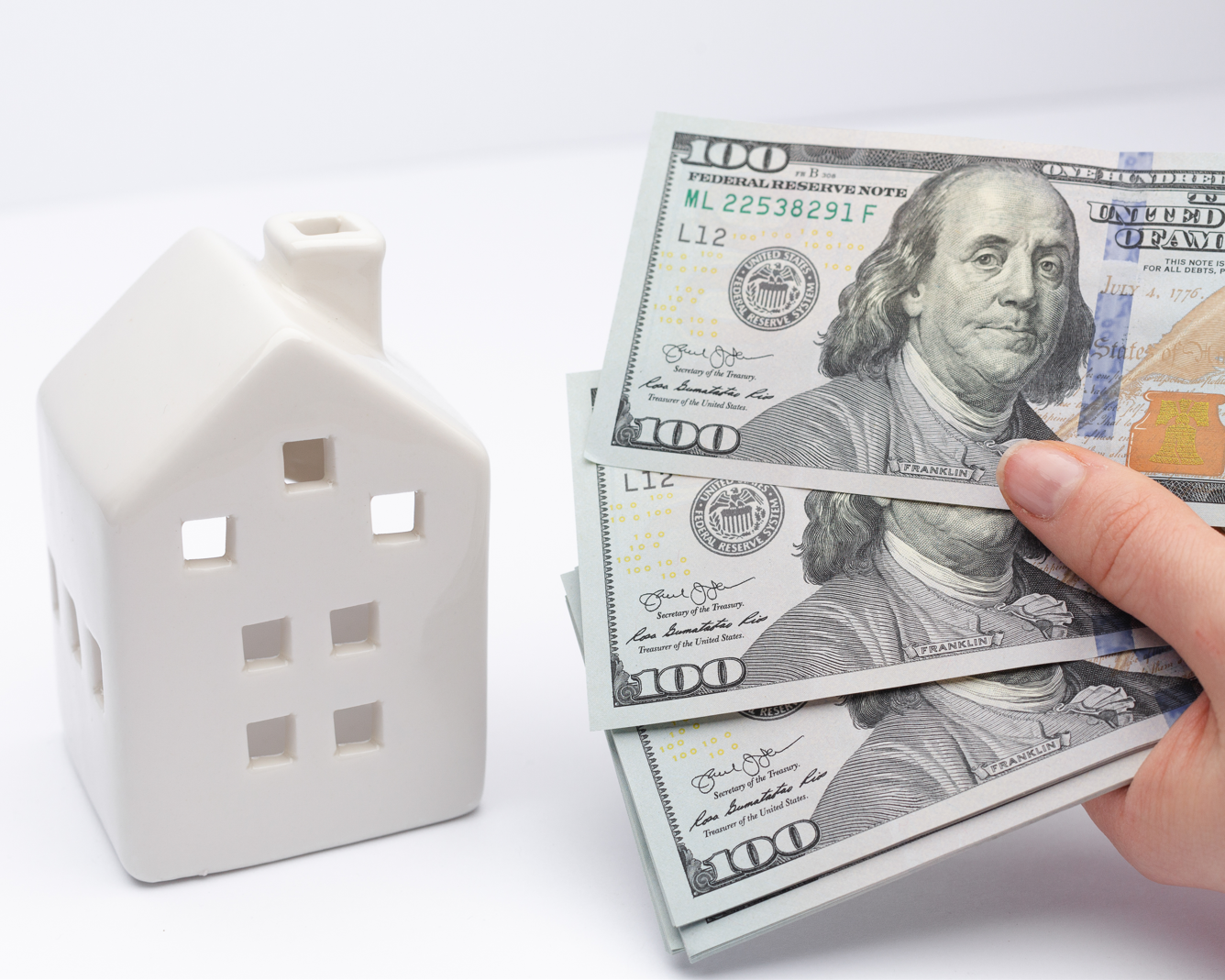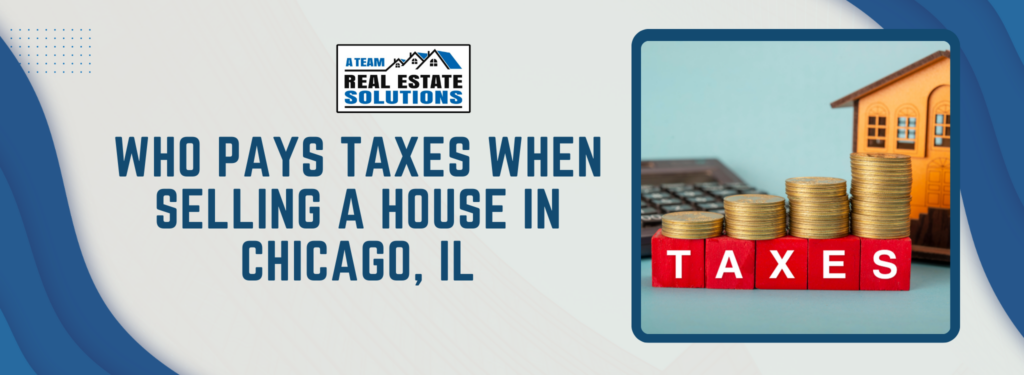
Taxes Involved in Selling a Home in Chicago
- Capital Gains Tax: This tax applies to the profit made from selling your property.
- Real Estate Transfer Tax: A local tax charged when the ownership of the property changes.
- Property Taxes: These are prorated based on the closing date between buyer and seller.

When you buy or sell a house, the total amount of taxes you have to pay depends on several things, such as the property’s selling price, its cost base, and the local tax rates set by the City of Chicago’s home rule authority. In addition, the terms of the contract are very important because they often say which side is responsible for paying certain fees, like legal and transaction fees.
Because tax rules are so complicated, it’s best to talk to a financial manager or a real estate lawyer. These experts can help you make sure you follow all the rules and fully understand your tax obligations. To avoid unpleasant financial shocks, knowing which costs are due at the time of closing is very important.
For these tax duties to be properly handled, it is best to work with experts who know about Chicago, IL real estate taxes. Their understanding can help you get through the process easily and avoid mistakes that will cost you a lot of money.
Capital Gains Tax in Illinois: What Portion of Your Profit is Taxable?
Capital gains tax Chicago IL is a big tax for people who sell things in Chicago. This tax covers both federal and state taxes on the money you make when you sell your home.
How the Capital Gains Tax Works:
To find your taxable income, take the selling price and remove your adjusted cost basis, which is the purchase price plus any improvements minus the amount of depreciation.
The federal capital gains tax rates depend on your tax bracket and the length of time you owned the home. If you owned the home for more than a year, you probably have long-term capital gains.
Illinois doesn’t have a special tax on capital gains; instead, it counts them as part of your state income.
Tax breaks and deductions:
If the house was your main home for at least two of the last five years before you sold it, you may be able to get up to $250,000 ($500,000 for married couples) in tax breaks.
Legal fees and home improvements that raise your home’s cost base are examples of expenses that you can deduct.
If you don’t report your capital gains correctly on your tax return, you could be fined. Working with a financial planner or tax expert who knows the rules in Illinois can make it easier to do the math, file the paperwork, and meet the deadlines. As a real estate tax expert, John Smith, CPA, says, “Good tax planning around capital gains can lower the seller’s tax costs, especially in Chicago’s market.”
Deciphering the Illinois Real Estate Transfer Tax: Buyer or Seller Responsibility?
The Chicago real estate transfer tax is due whenever the owner of a building changes. This tax may be split between the buyer and the seller, but who pays what rests on the contract and the rules in the area.
Who in Chicago has to pay the Transfer tax?

Usually, the person selling the home pays the transfer tax.
When a city has home rule, it sets its own transfer tax, which is one of the biggest in the country.
As is common in the area, transfer fees are usually split between the buyer and the seller.
Information on Transfer Tax:
Each party involved in a real estate transaction has specific financial responsibilities. The seller is responsible for paying this particular fee. On the other hand, the Chicago city sales tax is typically paid by the buyer. Additionally, records fees for titles and trust fees are usually divided equally between the buyer and the seller.
The transfer tax is another important cost to consider. It is paid at closing and documented in the settlement statement. The amount of this tax depends on the selling price of the property. To avoid confusion and ensure transparency, it is essential that the contract clearly specifies which party is responsible for paying each tax.
Understanding the transfer tax also helps buyers estimate their total closing costs and any additional fees associated with the transaction. These tips will help you sell your home in Chicago, IL for more money, less costs and more easily. We buy houses fast in Aurora, Bartlett, Bedford Park, Bellwood and all across Chicago. We buy houses as-is and can also help you with closing. You can read our reviews and also the process of how we buy houses.
Property Taxes and the Sale: Who Pays What and When?
When selling a house in Chicago, property taxes play a significant role in the transaction. These taxes are essential for funding local services such as schools and public safety, making them an important consideration for both buyers and sellers.
Property Tax Responsibilities During a Sale
Typically, property taxes are prorated as of the closing date. This means the seller is responsible for the taxes covering the period during which they owned the home, while the buyer assumes responsibility from the closing date onward. The state assesses properties annually and issues tax bills to the property owner at the start of the tax year. Additionally, sellers are required to disclose any unpaid taxes or existing liens before the sale can be finalized.
Proration and Payment Process
At closing, an escrow account often holds funds to cover the prorated taxes. The total amount owed depends on both the current tax rate and the property’s assessed value. In cases where the seller has already prepaid property taxes, and the prorated amount is less than what was paid, the seller may receive a refund after closing.
Here’s a simple example of how property tax proration works:
| Date of Closing | Seller Pays For | Buyer Pays For |
|---|---|---|
| Jan 1 – Closing | Taxes for this period | Taxes from closing to Dec 31 |
If property taxes are not properly settled, it can result in tax liens and delays in transferring the deed. To avoid these issues, it’s advisable to carefully review local property tax laws and consult with a real estate lawyer or tax adviser before proceeding with the sale.
Are you ready to fully understand your tax responsibilities when selling a house in Chicago? Contact A Team Real Estate Solutions for professional assistance with taxes and the entire selling process.
Chicago Home Sale Closing Costs: Taxes and Beyond
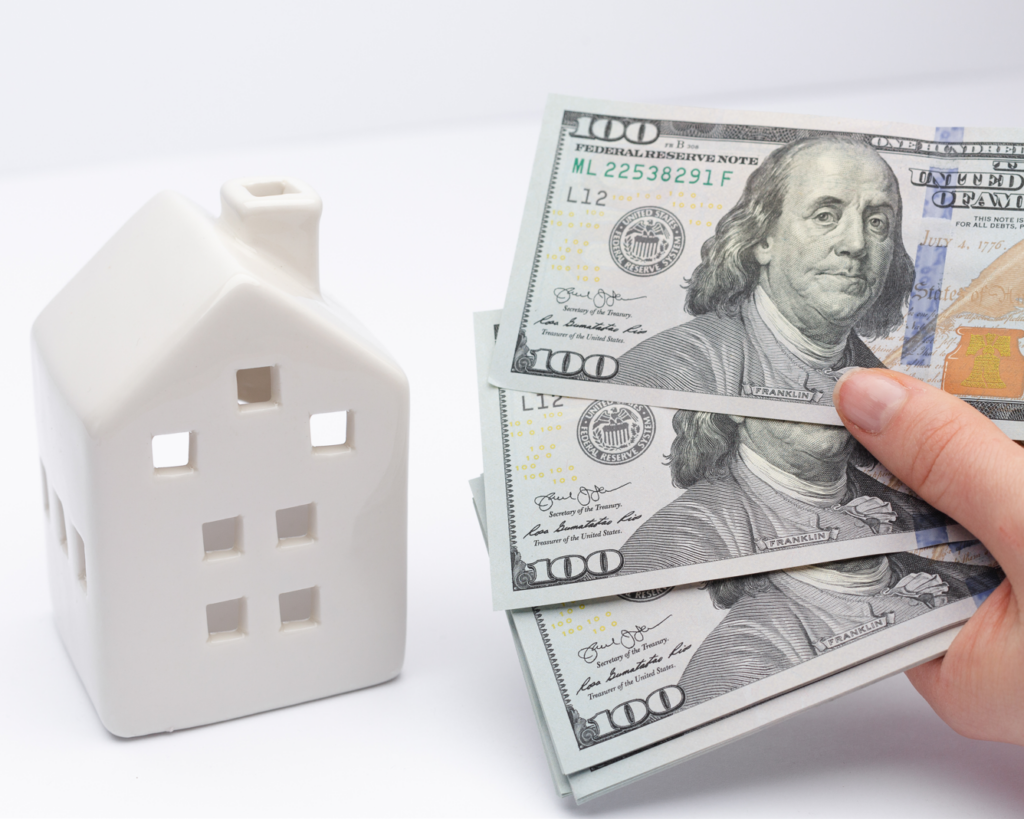
There are different closing costs in Chicago that you should be aware of, especially if you plan to sell a house with title issues. More than just taxes are involved—Chicago, IL buyers face various fees at closing, and these costs can significantly affect the final amount you receive from the sale.
There are fees for the sale itself, legal fees, title insurance, and other things that are needed to finish the deal. It will be easier for sellers to handle the process if they know who pays the closing costs in Chicago, IL, and what each fee covers.
Contracts and local rules spell out what the seller has to do at the closing. The seller usually pays for real estate transfer tax, attorney or real estate lawyer fees, title insurance, and transaction fees for escrow and closing. Each fee is required by law and should be discussed or made public as part of the sale agreement. Working with seasoned experts like real estate lawyers and financial planners helps buyers understand all of their costs and duties before the sale goes through.
Beyond Taxes: A Breakdown of Typical Seller Closing Costs in Chicago
In Chicago, loss costs include a lot of fees besides taxes. Usually, sellers run into:
The real estate transfer tax is paid when someone changes ownership of a piece of land.
Title insurance protects against disagreements over who owns a piece of land, and sellers usually pay for it.
Legal fees are what real estate lawyers charge for writing contracts, negotiating deals, and watching over the close.
Transaction fees pay for trust services and other costs related to running the sale.
Charges like property taxes or energy bills are split based on the contract terms and closing date.
Sellers need to read their contracts carefully to know what fees they have to pay and which ones they can share or discuss with buyers. There must be full information to show any costs still due at closing. Talking to a real estate lawyer or financial manager with experience selling homes in Chicago, Illinois, can help sellers avoid surprises and get a clear picture of what they need to do.
Understanding Your Responsibility for Prorated Property Taxes at Closing
Splitting up the property taxes Chicago buyers pay can be hard to understand. Property taxes are due once a year in Chicago, Illinois but the buyer and seller split the bill based on when the sale goes through.
When you sell a house in Chicago, here are some essential facts about adjusted property taxes:
How to Figure Out the Tax Burden: The annual property tax is split between the buyer and the seller based on how many days each person owns the home during the tax time.
In Chicago, property taxes are paid by the seller and the buyer. Before the closing, the seller usually pays the taxes.
Escrow Role: An escrow account handles partial taxes at closing to ensure that payments are made correctly and that everything is understood.
Sellers are responsible for paying property taxes when they owned the home, even if the buyer pays the bill later.
Figuring out how to pay prorated property taxes helps buyers make financial plans. A financial planner named John Smith says, “Handling prorated property taxes correctly keeps you from getting surprise bills after closing.” After signing the contract, sellers should talk to their real estate lawyer and escrow person to make sure they understand how much tax they will have to pay and when they need to pay it.
Calculating Your Net Proceeds: Taxes, Costs, and Your Bottom Line
Depending on your income level and how long you’ve owned the property, you may be subject to capital gains tax. Additionally, closing costs can add up quickly and typically include real estate transfer taxes, legal fees, title insurance, escrow fees, and realtor commissions.
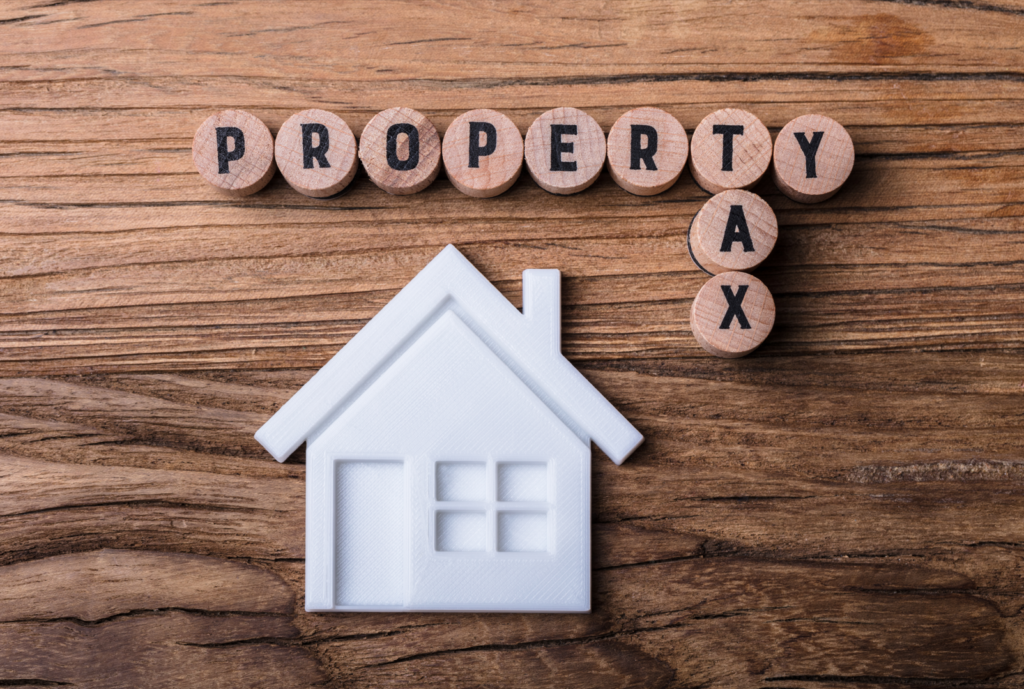
You should also consider deductions and expenses such as repair costs, legal fees, and prorated property taxes, all of which reduce your taxable income and, ultimately, your profit from the sale. Engaging in financial planning with a professional who understands the Chicago real estate market can help you estimate these costs accurately and find ways to maximize your net proceeds.
How to Estimate Your Net Proceeds
- Start with your expected sale price.
- Subtract closing costs, including taxes and various fees.
- Deduct realtor commissions, which typically range from 5% to 6% of the sale price.
- Account for capital gains tax, if applicable based on your situation.
- Include other expenses, such as repair costs and any outstanding legal fees.
For example, if you sell your home for $300,000 and your combined closing costs and realtor commissions total $20,000, plus you owe a 15% capital gains tax, your final net proceeds will be considerably less than the sale price. Proper planning and professional advice ensure you calculate these figures correctly and avoid unpleasant surprises.
Minimizing Your Tax Liability When Selling Your Chicago Home
When you sell your home in Chicago, Illinois, you may have to pay a lot of taxes. Sellers can lower their tax bill by understanding how the capital gains tax works and taking advantage of the exemptions and credits that Illinois law offers. This part talks about some of the best ways to lower your Chicago capital gains taxes when you sell your home.
How to Save Money on Illinois Capital Gains Tax Exemptions and Deductions
The profit you make when you sell real estate, like a house, is subject to capital gains tax. When you sell your home in Illinois, you have to pay federal and state income taxes on the money you make. People who are selling their home should know about deductions and deductible costs that can lower their taxable gain and adjusted cost basis.
Things you should remember:
If a person has stayed in their home for at least two of the last five years, the IRS lets them deduct up to $250,000 ($500,000 for married couples filing jointly) of their capital gains. Most buyers in Chicago are covered by this exclusion, which helps them pay less in taxes.
- Changes to the Cost Basis: Sellers can take certain costs out of their capital gains, like legal fees, real estate professional commissions, and home upgrades. Because of these changes, taxable profits are smaller.
- Depreciation Recapture: If the property was rented out or used for business, the depreciation that was claimed over the years needs to be paid back and charged. This helps buyers get ready for any extra taxes that may be due.
- Illinois Income Tax: Illinois has a flat rate of income tax on capital gains. When sellers plan their taxes, they should think about this and see if their state offers any discounts or credits.
- Other Deductible Expenses: Some buyers may be able to get extra tax breaks for things like moving costs or making their homes more energy efficient. Different people may be eligible, so it’s best to talk to tax experts.
Tax planning for home sales: taking steps ahead of time to lower your tax bill
People who have to pay taxes on the sale of a home in Chicago, IL should plan ahead. A good plan keeps you from making mistakes, makes sure you follow the law, and saves you money.
These tips will help you plan your taxes:
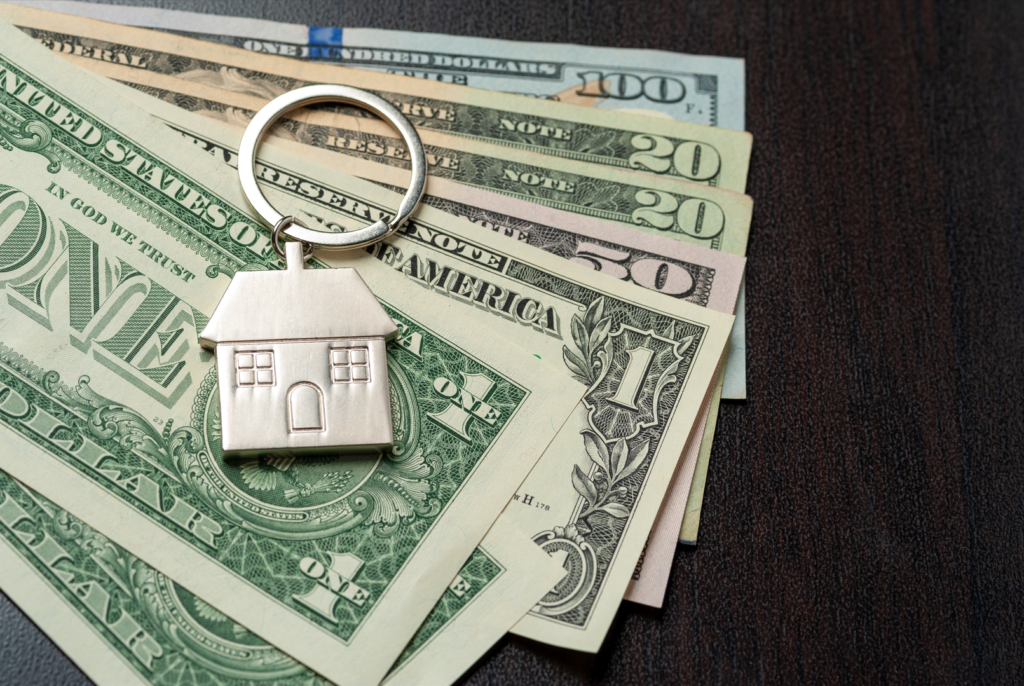
- Work with Financial Planners and Tax Experts: These professionals can give you help based on the latest tax laws from the IRS and Illinois. With their help, you can avoid making mistakes that cost cash.
- Know What You Need to Do to Report: What you say about the sale on your tax return is important. This means showing income, expenses, and tax breaks.
- Keep in-depth records: Keep records of the sale price, the cost of improvements, the legal fees, and the buy price. Good results back up what you say.
- Keep an eye out for changes to tax laws: To save money, keep up with the changes in tax rates and benefits that affect Chicago real estate.
- Pick the Best Time to Sell: If you time your sale right, you can pay less in taxes. One way is to wait until you meet residency requirements for exemptions or use capital losses to lower your gains.
- Use the Credits You Have: Look for federal and Illinois tax credits that might help you with the sale of your house.
- Do not make these mistakes: Not telling the IRS about your income or not knowing the rules for exemptions can make your tax bill go up and cause problems with the IRS.
Tax Reporting Process After Selling Your Chicago Home
Important Illinois tax forms for reporting capital gains (IRS and State)
It’s important to know which tax forms to use for capital gains when you sell your Chicago home. Capital gains tax is the tax you pay on the extra money you get when you sell your home. You need to be honest about this on your tax forms so that they can figure out your taxable income and tax debt.
These are the main forms you will need:
If you buy a house, the closing agent will give you Form 1099-S. It tells both you and the IRS how much money you made from the sale.
List of capital gains and losses on Schedule D: With this form, you can figure out and report to the IRS your home sale gain or loss. When you file your Illinois state income tax return (Form IL-1040), this is what you use to list your capital gains. It adds up all the cash sources, like selling property.
Keep all the papers that have to do with the sale, like the purchase agreement, the closing statement, and any records you have for home improvements. These papers back up the amounts you reported and could help you officially lower your taxable gain.
Frequently Asked Questions
Who in Chicago pays the taxes when a house is sold?

When someone sells a house in Chicago, they generally have to pay a number of taxes. Some of these are transfer taxes and maybe even capital gains taxes. Who has to pay what is set by the City of Chicago and the state of Illinois. You should talk to a home buyers or tax expert to find out what you need to do.
What kinds of taxes should I expect when I sell a house in Chicago?
You might have to pay these things to sell your home in Chicago:
The Chicago Real Property Transfer Tax and the County Transfer Tax are both parts of the Illinois state income tax on capital gains. There may be a federal capital gains tax on your profit, but there are deductions. The exact taxes you have to pay rely on where you live, what kind of property you own, and whether you are married. You can get help with these issues from a lawyer or tax expert.
How do the closing costs in Chicago change the total taxes owed when a house is sold?
Transfer taxes, legal fees, title insurance, and recording fees are all part of the closing costs. People who sell their homes in Chicago generally pay the city and county transfer taxes. Other costs depend on the terms of the sale. You can talk to the buyer about who will pay certain fees. These costs are easier to understand if you work with a real estate buyer or lawyer.
Are there tax breaks or exemptions that make selling a home in Chicago cheaper?
Yes, some buyers may be able to get tax breaks. For instance, the main residence exemption might lower the tax on capital gains. Tax credits and 1031 exchanges are two other ways to lower or delay taxes on rented or investment properties. You can find these benefits by talking to a professional who knows Illinois tax rules.
Does being married affect the taxes you must pay when you sell a house in Chicago?
Being married can change how much tax you have to pay. People who are married and file jointly may be able to get bigger capital gains tax breaks on their main home. Taxes may go down because of this. If you want to know how your marital situation changes your tax obligations, you should talk to a lawyer or tax expert.
How do real estate lawyers and title insurance help with taxes when a house is sold?
Lawyers who help people buy and sell homes can walk you through the formal steps and explain tax rules. Another thing they do is make sale papers. Title insurance shields you in case there are problems with who owns the property that could cause the sale to be delayed or canceled. To make sure the sale goes smoothly and taxes are done right, both are important.
How do I figure out how much tax I need to pay when I sell my Chicago home?
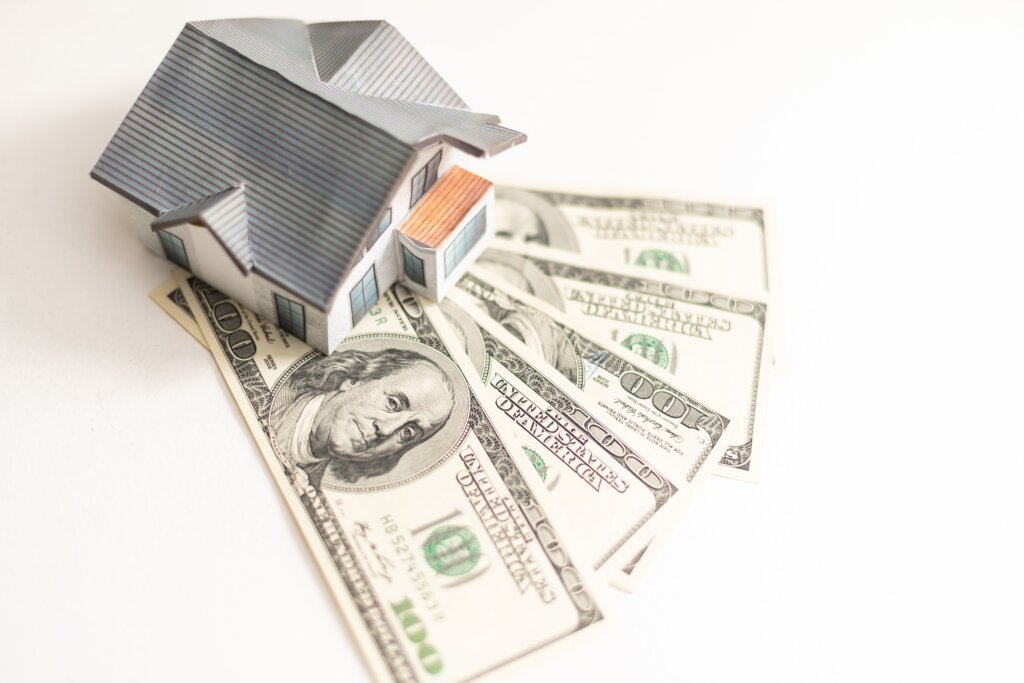
To figure out your taxes, you should:
Take the sale price of your home and subtract the original price plus any changes made to it. This will give you your capital gain.
Use the transfer tax rate in Chicago, which is about 1.5% for buyers.
Take a look at your state and federal income tax rates.
For correct figures, you can use tax calculators online, IRS publications, or talk to a tax helper.
Where can I get reliable information and help about selling a house in Chicago?
These are some good sources:
For state tax rules, visit the webpage of the Illinois Department of Revenue. Websites where you can pay your local taxes for the City of Chicago. Real estate brokers in your area, the National Association of Realtors, and Legal aid groups can help you if you need free or cheap legal advice.
Helpful Chicago Blog Articles
- Who Pays Closing Costs When Selling A House In Chicago, IL
- Who Pays Taxes When Selling a House in Chicago, IL
- How To Sell A Chicago Home With Title Defects
- Filing A Quitclaim Deed For Chicago Real Estate
- Sell Your Chicago Home To A Developer
- Selling A Home That Needs Repairs in Chicago, IL
- Can I Sell Half Of My House In Chicago, IL
- Selling Your Chicago Home After Three Years
- Selling Distressed Property In Chicago, IL
- Inherited Real Estate With Siblings In Chicago, IL
- How To Stop Unsolicited Home Offers In Chicago, IL

